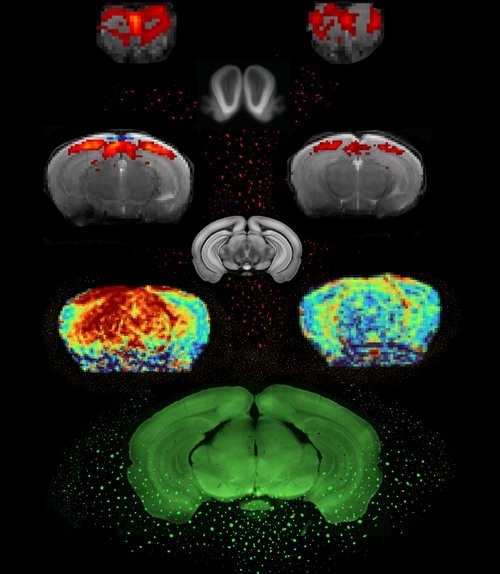Ontario Provides IT Company with Grant To Support Further Growth
|
By MedImaging International staff writers Posted on 11 Feb 2009 |
Agfa Healthcare (Mortsel, Belgium), a developer of information technology- (IT)-enabled workflow and diagnostic imaging systems, has signed an agreement with the Government of Ontario, Canada for about US$24 million governmental grant to support the growth of the company's research, development, and regional operation centers in Toronto and Waterloo (Canada).
The grant will support nearly $162.5 million investment by Agfa HealthCare in its Ontario operations, creating 100 new positions and reinvesting in 276 existing jobs. The total investment is designed to centralize and streamline the company's research, development, and regional operations, which will serve both the North American as well as global requirements for the company. Partnering with businesses to generate investment and create jobs is a component of the Ontario government's five-point plan to grow the economy and will be provided from the Next Generation of Jobs Fund.
The 100 new jobs created at Agfa HealthCare will include software development roles, general support services, and back office functions designed to meet the company's regional, national, and global needs. In total, Agfa HealthCare will employ nearly 400 people in Ontario, focusing on the development, implementation, and support of the company's eHealth regional health and digital imaging solutions. The company's Waterloo office will also strengthen its position as one of the company's primary research and development facilities, developing the company's leading picture archiving and communication systems (PACS), called Impax and other software systems for hospitals and healthcare facilities worldwide.
"We're proud to support Agfa HealthCare's investment in their Ontario operations and workforce. We have a skilled and educated workforce, a culture of innovation, and a competitive business environment. The Next Generation of Jobs Fund leverages those advantages to create quality jobs for Ontario families,” said Ontario's premier, Dalton McGuinty.
Supporting Premier McGuinty's statement, Michael Bryant, Ontario's minister of economic development stated, "We're proud to work with innovative companies that come to the table with their own growth plans and resources. Agfa HealthCare's new technology represents a step forward in the development of e-health, providing an Ontario solution to a global need and a shot in the arm to the local economy.”
"This is an exciting moment in our long history in Canada and signals a continued dedication to our customers in terms of research and development. The systems which will be developed in Waterloo will be an integral part of our next generation of enterprise-wide solutions, designed to help our customers transform from analog to digital to full fledged IT solutions. This will in turn support improved workflow, accuracy, and patient care for hospitals and healthcare facilities worldwide. The support from the McGuinty government allows us to accelerate our growth plans and bring our new technology to market, as well as anchoring our investment here in Ontario,” concluded Michael Green, vice president North America region, Agfa HealthCare.
Agfa HealthCare, a member of the Agfa-Gevaert Group, is a leading provider of IT-enabled clinical workflow and diagnostic image management solutions, and systems for capturing and processing images in hospitals and healthcare facilities. The company develops and delivers its solutions to hospitals and healthcare facilities in over 100 markets worldwide and is an active provider of IT-enabled diagnostic tools supporting Canada''s transition to fully fledged e-health solutions through its PACS, clinical applications and consolidated data centers.
Related Links:
Agfa Healthcare
The grant will support nearly $162.5 million investment by Agfa HealthCare in its Ontario operations, creating 100 new positions and reinvesting in 276 existing jobs. The total investment is designed to centralize and streamline the company's research, development, and regional operations, which will serve both the North American as well as global requirements for the company. Partnering with businesses to generate investment and create jobs is a component of the Ontario government's five-point plan to grow the economy and will be provided from the Next Generation of Jobs Fund.
The 100 new jobs created at Agfa HealthCare will include software development roles, general support services, and back office functions designed to meet the company's regional, national, and global needs. In total, Agfa HealthCare will employ nearly 400 people in Ontario, focusing on the development, implementation, and support of the company's eHealth regional health and digital imaging solutions. The company's Waterloo office will also strengthen its position as one of the company's primary research and development facilities, developing the company's leading picture archiving and communication systems (PACS), called Impax and other software systems for hospitals and healthcare facilities worldwide.
"We're proud to support Agfa HealthCare's investment in their Ontario operations and workforce. We have a skilled and educated workforce, a culture of innovation, and a competitive business environment. The Next Generation of Jobs Fund leverages those advantages to create quality jobs for Ontario families,” said Ontario's premier, Dalton McGuinty.
Supporting Premier McGuinty's statement, Michael Bryant, Ontario's minister of economic development stated, "We're proud to work with innovative companies that come to the table with their own growth plans and resources. Agfa HealthCare's new technology represents a step forward in the development of e-health, providing an Ontario solution to a global need and a shot in the arm to the local economy.”
"This is an exciting moment in our long history in Canada and signals a continued dedication to our customers in terms of research and development. The systems which will be developed in Waterloo will be an integral part of our next generation of enterprise-wide solutions, designed to help our customers transform from analog to digital to full fledged IT solutions. This will in turn support improved workflow, accuracy, and patient care for hospitals and healthcare facilities worldwide. The support from the McGuinty government allows us to accelerate our growth plans and bring our new technology to market, as well as anchoring our investment here in Ontario,” concluded Michael Green, vice president North America region, Agfa HealthCare.
Agfa HealthCare, a member of the Agfa-Gevaert Group, is a leading provider of IT-enabled clinical workflow and diagnostic image management solutions, and systems for capturing and processing images in hospitals and healthcare facilities. The company develops and delivers its solutions to hospitals and healthcare facilities in over 100 markets worldwide and is an active provider of IT-enabled diagnostic tools supporting Canada''s transition to fully fledged e-health solutions through its PACS, clinical applications and consolidated data centers.
Related Links:
Agfa Healthcare
Latest Industry News News
- GE HealthCare and NVIDIA Collaboration to Reimagine Diagnostic Imaging
- Patient-Specific 3D-Printed Phantoms Transform CT Imaging
- Siemens and Sectra Collaborate on Enhancing Radiology Workflows
- Bracco Diagnostics and ColoWatch Partner to Expand Availability CRC Screening Tests Using Virtual Colonoscopy
- Mindray Partners with TeleRay to Streamline Ultrasound Delivery
- Philips and Medtronic Partner on Stroke Care
- Siemens and Medtronic Enter into Global Partnership for Advancing Spine Care Imaging Technologies
- RSNA 2024 Technical Exhibits to Showcase Latest Advances in Radiology
- Bracco Collaborates with Arrayus on Microbubble-Assisted Focused Ultrasound Therapy for Pancreatic Cancer
- Innovative Collaboration to Enhance Ischemic Stroke Detection and Elevate Standards in Diagnostic Imaging
- RSNA 2024 Registration Opens
- Microsoft collaborates with Leading Academic Medical Systems to Advance AI in Medical Imaging
- GE HealthCare Acquires Intelligent Ultrasound Group’s Clinical Artificial Intelligence Business
- Bayer and Rad AI Collaborate on Expanding Use of Cutting Edge AI Radiology Operational Solutions
- Polish Med-Tech Company BrainScan to Expand Extensively into Foreign Markets
- Hologic Acquires UK-Based Breast Surgical Guidance Company Endomagnetics Ltd.
Channels
Radiography
view channel
Machine Learning Algorithm Identifies Cardiovascular Risk from Routine Bone Density Scans
A new study published in the Journal of Bone and Mineral Research reveals that an automated machine learning program can predict the risk of cardiovascular events and falls or fractures by analyzing bone... Read more
AI Improves Early Detection of Interval Breast Cancers
Interval breast cancers, which occur between routine screenings, are easier to treat when detected earlier. Early detection can reduce the need for aggressive treatments and improve the chances of better outcomes.... Read more
World's Largest Class Single Crystal Diamond Radiation Detector Opens New Possibilities for Diagnostic Imaging
Diamonds possess ideal physical properties for radiation detection, such as exceptional thermal and chemical stability along with a quick response time. Made of carbon with an atomic number of six, diamonds... Read moreMRI
view channel
Simple Brain Scan Diagnoses Parkinson's Disease Years Before It Becomes Untreatable
Parkinson's disease (PD) remains a challenging condition to treat, with no known cure. Though therapies have improved over time, and ongoing research focuses on methods to slow or alter the disease’s progression,... Read more
Cutting-Edge MRI Technology to Revolutionize Diagnosis of Common Heart Problem
Aortic stenosis is a common and potentially life-threatening heart condition. It occurs when the aortic valve, which regulates blood flow from the heart to the rest of the body, becomes stiff and narrow.... Read moreUltrasound
view channel
New Incision-Free Technique Halts Growth of Debilitating Brain Lesions
Cerebral cavernous malformations (CCMs), also known as cavernomas, are abnormal clusters of blood vessels that can grow in the brain, spinal cord, or other parts of the body. While most cases remain asymptomatic,... Read more.jpeg)
AI-Powered Lung Ultrasound Outperforms Human Experts in Tuberculosis Diagnosis
Despite global declines in tuberculosis (TB) rates in previous years, the incidence of TB rose by 4.6% from 2020 to 2023. Early screening and rapid diagnosis are essential elements of the World Health... Read moreNuclear Medicine
view channel
New Imaging Approach Could Reduce Need for Biopsies to Monitor Prostate Cancer
Prostate cancer is the second leading cause of cancer-related death among men in the United States. However, the majority of older men diagnosed with prostate cancer have slow-growing, low-risk forms of... Read more
Novel Radiolabeled Antibody Improves Diagnosis and Treatment of Solid Tumors
Interleukin-13 receptor α-2 (IL13Rα2) is a cell surface receptor commonly found in solid tumors such as glioblastoma, melanoma, and breast cancer. It is minimally expressed in normal tissues, making it... Read moreGeneral/Advanced Imaging
view channel
First-Of-Its-Kind Wearable Device Offers Revolutionary Alternative to CT Scans
Currently, patients with conditions such as heart failure, pneumonia, or respiratory distress often require multiple imaging procedures that are intermittent, disruptive, and involve high levels of radiation.... Read more
AI-Based CT Scan Analysis Predicts Early-Stage Kidney Damage Due to Cancer Treatments
Radioligand therapy, a form of targeted nuclear medicine, has recently gained attention for its potential in treating specific types of tumors. However, one of the potential side effects of this therapy... Read moreImaging IT
view channel
New Google Cloud Medical Imaging Suite Makes Imaging Healthcare Data More Accessible
Medical imaging is a critical tool used to diagnose patients, and there are billions of medical images scanned globally each year. Imaging data accounts for about 90% of all healthcare data1 and, until... Read more






















